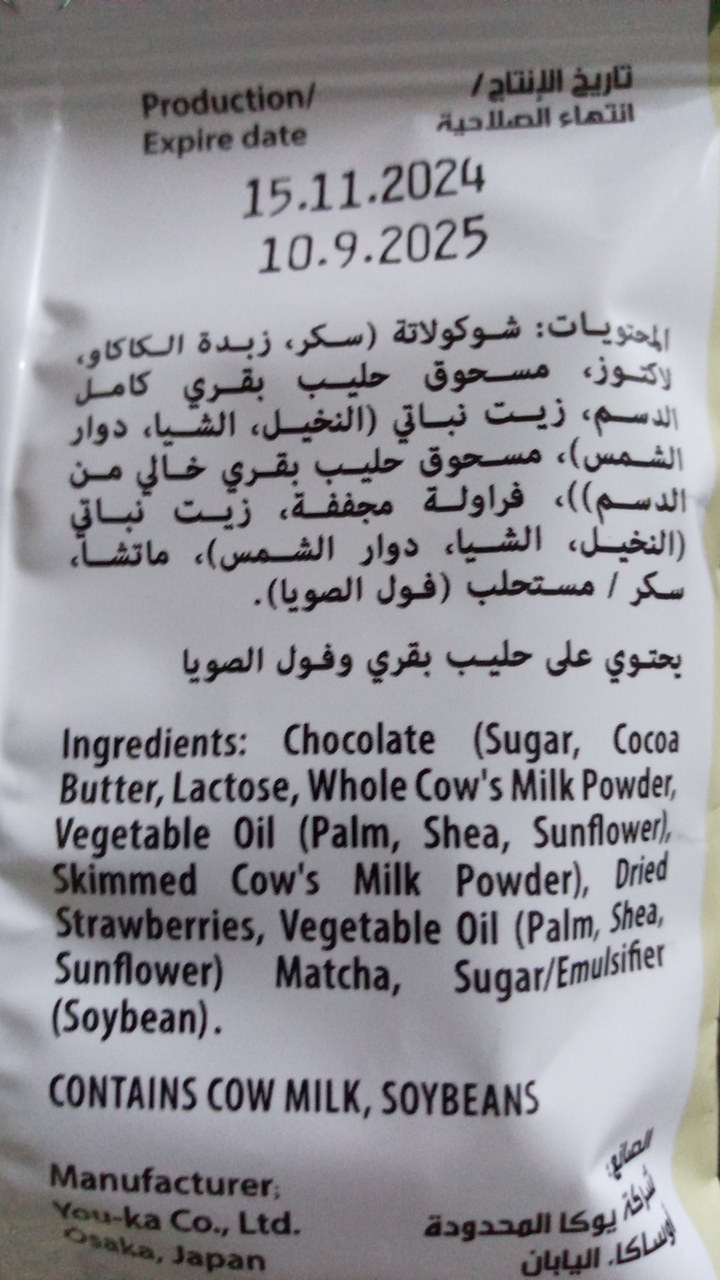
Barcode: 4902486331929
Chocolate Snack
DOUBTFUL
📝 Reason: Check for Halal Logo
📄 Certificates: None
Ingredients:
Details
Understanding the Halal Status of Chocolate Snack
If you’re wondering about the Halal status of Chocolate Snack, you’re not alone. This product tends to raise questions regarding its ingredients and sourcing. While some components may be naturally Halal, the presence of uncertain elements leads to a ‘Doubtful’ status. Let’s break down the ingredients and analyze their Halal compliance.
Ingredients Breakdown
The Chocolate Snack consists of the following ingredients:
- Sugar: Naturally Halal as it is plant-based. Source.
- Cocoa Butter: Also naturally Halal, derived from cocoa beans. Source.
- Lactose: This is derived from cow’s milk but is generally considered Halal as it involves no animal slaughter. Source.
- Whole Cow’s Milk Powder: Like lactose, it is derived from cow milk and does not involve any non-Halal processes. Source.
- Vegetable Oils (Palm, Shea, Sunflower): These oils are naturally Halal being plant-based. Source.
- Skimmed Cow’s Milk Powder: Again, derived from cow milk without any issues regarding Halal compliance. Source.
- Dried Strawberries: Naturally Halal, as these are plant-based ingredients. Source.
- Matcha: A green tea powder, which is naturally Halal. Source.
- Sugar/Emulsifier: This is where the confusion arises. The emulsifier’s source is unclear, creating uncertainty regarding its Halal status. Hence, it contributes to the overall ‘Doubtful’ label.
Halal Certification and E-Numbers
It’s important to understand that while many ingredients in Chocolate Snack come from Halal sources, the overall product lacks a Halal certification, which is essential for comprehensive assurance. Without certification, consumers are advised to check for an official Halal logo, signifying adherence to strict Halal guidelines.
The presence of E-numbers is also pivotal in ensuring the Halal status of a product. Even though this chocolate snack does not contain identified E-numbers, the emulsifier remains an area of concern. Always ascertain these details or consult your local Halal certification body if necessary.
Conclusion
In summary, the halality of Chocolate Snack is a complex topic. Most of its ingredients are derived from Halal sources; however, the ambiguous nature of the emulsifier introduces uncertainty. Consumers need to rely on clear labeling and certifications to feel confident about their choices. Remember, checking for Halal logos and diving deeper into ingredient sources pays off when it comes to food safety and dietary concerns.
Ultimately, while Chocolate Snack may feature multiple Halal ingredients, the lack of certification and the doubt surrounding the emulsifier’s source suggest that individuals seeking strictly Halal products should approach with caution.
